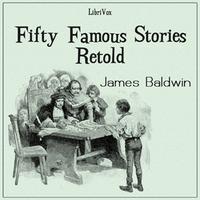20. THE STORY OF WILLIAM TELL
20. LA HISTORIA DE WILLIAM TELL
20. HET VERHAAL VAN WILLIAM TELL
20. A HISTÓRIA DE WILLIAM TELL
20. ИСТОРИЯ УИЛЬЯМА РАССКАЖИ
THE people of Switzerland were not always free and happy as they are to-day.
スイスの人々は、今日のようにいつも自由で幸せだったわけではありません。
Many years ago a proud tyrant, whose name was Gessler, ruled over them, and made their lot a bitter one indeed.
Před mnoha lety nad nimi vládl hrdý tyran, který se jmenoval Gessler, a jejich úděl skutečně ztrpčil.
何年も前に、ゲスラーという名の誇り高き暴君が彼らを支配し、彼らの多くを実際に苦いものにしました。
Yıllar önce adı Gessler olan gururlu bir tiran, üzerlerine hükmetti ve çok acı bir şey yaptı.
One day this tyrant set up a tall pole in the public square, and put his own cap on the top of it; and then he gave orders that every man who came into the town should bow down before it.
Jednoho dne tento tyran postavil na náměstí vysokou tyč a na její vrchol nasadil vlastní čepici; a pak vydal rozkaz, aby se před ním poklonil každý, kdo přijde do města.
ある日、この暴君は公共の広場に背の高い棒を立て、その上に自分の帽子をかぶせました。それから彼は、町に来るすべての人がその前にひれ伏すように命じました。
Bir gün bu tiran halk meydanında uzun boylu bir kutup kurdu ve kendi kapağını üstüne koydu; ve sonra şehre gelen her adamın ondan önce aşağı eğilmesi gerektiğini emretti.
But there was one man, named William Tell, who would not do this.
Ama bunu yapamayan William Tell adında bir adam vardı.
He stood up straight with folded arms, and laughed at the swinging cap.
Postavil se rovně se založenýma rukama a zasmál se houpající se čepici.
彼は腕を組んでまっすぐに立ち上がり、揺れる帽子を見て笑った。
Düz bir şekilde katlanmış kollarıyla ayağa kalktı ve sallanan kapağa güldü.
He would not bow down to Gessler himself.
Sám by se Gesslerovi nepoklonil.
彼はゲスラー自身に頭を下げるつもりはありませんでした。
When Gessler heard of this, he was very angry.
He was afraid that other men would disobey, and that soon the whole country would rebel against him.
Bál se, že ostatní muži neposlechnou a že se proti němu brzy vzbouří celá země.
彼は、他の人が従わないのではないかと心配し、すぐに国全体が彼に反抗するのではないかと心配しました。
Diğer erkeklerin itaatsizlik etmesinden korkuyordu ve yakında bütün ülke ona karşı isyan edecektir.
So he made up his mind to punish the bold man.
لذلك قرر أن يعاقب الرجل الجريء.
A tak se rozhodl toho smělého muže potrestat.
そこで彼は大胆な男を罰する決心をした。
Bu yüzden cesur adamı cezalandırmak için kararını verdi.
William Tell’s home was among the mountains, and he was a famous hunter.
كان منزل وليام تل بين الجبال ، وكان صيادًا مشهورًا.
Vilém Tellův domov byl mezi horami a byl to slavný lovec.
William Tell'in evi dağların arasındaydı ve o ünlü bir avcıydı.
No one in all the land could shoot with bow and arrow so well as he.
彼ほど上手に弓矢を射ることができる者は、全土にいない。
Bütün topraklarda hiç kimse o kadar iyi ok ve yay ile çekim yapamazdı.
Gessler knew this, and so he thought of a cruel plan to make the hunter’s own skill bring him to grief.
Gessler to věděl, a tak vymyslel krutý plán, jak přimět lovce, aby ho zarmoutila jeho vlastní dovednost.
ゲスラーはそれを知っていたので、ハンター自身のスキルで彼を悲しませるという残酷な計画を思いつきました。
Gessler bunu biliyordu ve bu yüzden avcının kendi yeteneğini onu üzüntüye getirmek için acımasız bir plan düşündü.
He ordered that Tell’s little boy should be made to stand up in the public square with an apple on his head; and then he bade Tell shoot the apple with one of his arrows.
Nařídil, aby byl Tellův malý chlapec přinucen postavit se na veřejném náměstí s jablkem na hlavě; a pak vyzval Tella, aby střílel jablko jedním ze svých šípů.
彼は、テルの小さな男の子を、リンゴを頭に乗せて公共の広場で立たせるように命じた。それから彼はテルに、自分の矢でリンゴを撃つように命じました。
Tell'in küçük oğlunun başındaki bir elma ile kamusal meydanda ayağa kalkması gerektiğini söyledi; ve sonra o elmayı oklarından biri ile elma ateş söyle.
Tell begged the tyrant not to have him make this test of his skill.
テルは暴君に、彼のスキルのこのテストをさせないように懇願した.
Tiran'a, bu testini yapmasını istemediğini söyle.
What if the boy should move?
Ya çocuğun hareket etmesi gerekiyorsa?
What if the bowman’s hand should tremble?
Co když by se lučištníkova ruka třásla?
Peki ya bowman'in eli titriyorsa?
What if the arrow should not carry true?
Co když by šíp neměl být pravdivý?
矢印が真を運ぶべきではない場合はどうなりますか?
Ok doğru olmasa ne olur?
"Will you make me kill my boy?"
"Donutíš mě zabít mého chlapce?"
"Beni oğlumu öldürür müsün?"
he said.
"Say no more," said Gessler.
「これ以上言うな」とゲスラーは言った。
"Daha fazla deme" dedi Gessler.
"You must hit the apple with your one arrow.
Elmayı bir okla vurmalısın.
If you fail, my soldiers shall kill the boy before your eyes."
إذا فشلت ، يقتل جنودي الصبي أمام عينيك ".
Then, without another word, Tell fitted the arrow to his bow.
それから、何も言わずに、テルは弓に矢を取り付けた。
Sonra, başka bir kelime olmadan, söyle, oku yayına yerleştirdi.
He took aim, and let it fly.
Zamířil a nechal to letět.
彼は狙いを定め、飛ばした。
Amaç aldı ve uçmasına izin verdi.
The boy stood firm and still.
Chlapec stál pevně a nehybně.
Çocuk sıkı durdu ve hala.
He was not afraid, for he had all faith in his father’s skill.
Nebál se, protože plně věřil v dovednosti svého otce.
彼は父親の腕前を信じていたので、怖くはありませんでした。
Korkmuyordu, çünkü babasının yeteneğine olan inancına sahipti.
The arrow whistled through the air.
矢は空中を笛を吹いた。
Ok havada ıslık çaldı.
It struck the apple fairly in the center, and carried it away.
Zasáhlo jablko docela uprostřed a odneslo ho pryč.
りんごの真ん中をかなり叩いて運び去りました。
The people who saw it shouted with joy.
Lidé, kteří to viděli, křičeli radostí.
それを見た人々は歓声を上げた。
Bunu gören insanlar sevinçle bağırdı.
As Tell was turning away from the place, an arrow which he had hidden under his coat dropped to the ground.
テルがその場から背を向けると、コートの下に隠していた矢が地面に落ちた。
Tell bir yerden uzaklaşırken, ceketinin altına gizlediği bir ok yere düştü.
"Fellow!"
cried Gessler, "what mean you with this second arrow?"
ゲスラーは叫びました。
Gessler, "bu ikinci okla ne demek istiyorsun?" diye bağırdı
"Tyrant!"
was Tell’s proud answer, "this arrow was for your heart if I had hurt my child."
テルの誇らしげな答えは、「私が子供を傷つけた場合、この矢はあなたの心のためでした」.
And there is an old story, that, not long after this, Tell did shoot the tyrant with one of his arrows; and thus he set his country free.
A existuje stará historka, že nedlouho po tom Tell zastřelil tyrana jedním ze svých šípů; a tak osvobodil svou zemi.
そして、この後まもなく、テルが暴君を矢の1本で撃ったという古い話があります。したがって、彼は自分の国を解放しました。

